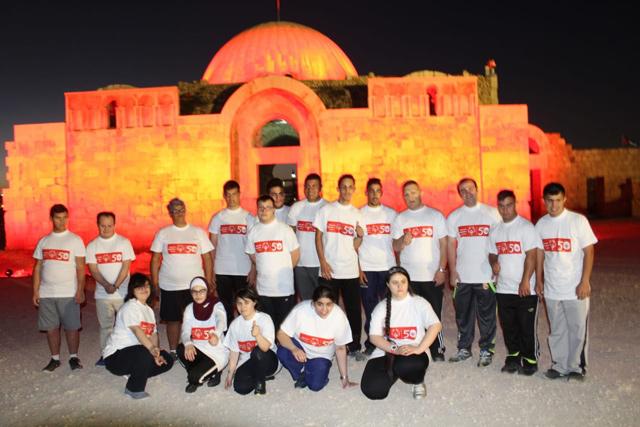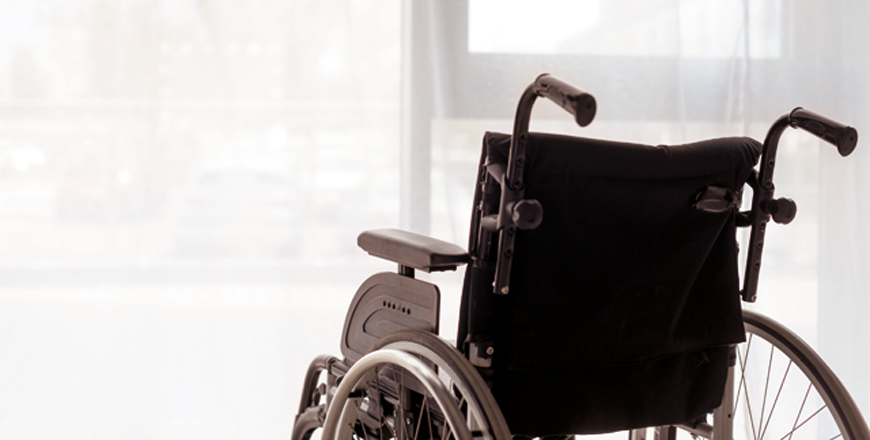You are here
Hurdles aplenty on road to inclusive education, say experts
By Imke van Smoorenburg - Jan 24,2022 - Last updated at Jan 24,2022
AMMAN — Despite various inclusive education programmes and pilots, many children with disabilities are still excluded from education, physically as well as socially, say experts.
Inclusive education should be prioritised as many challenges appear for children with disabilities within the current education system, according to experts and officials interviewed by The Jordan Times.
Statistics from the Ministry of Education and the Ministry of Social Development show that only 1.9 per cent of the total children enrolled in primary education are children with disabilities, compared with a world-wide average of 10 per cent.
Data from the Department of Statistics (2019) show that 79 per cent of persons with disabilities of school age are excluded from any form of education.
“There are often not sufficient programmes that serve students with special needs,” said Nahla Momani, facilitator of the Protection Commission at the National Centre for Human Rights.
“It remains hard for students with disabilities to participate in community activities and the presence of bullying by students is very high,” Momani told The Jordan Times.
The Ministry of Education has been working with partners to guarantee that students with disabilities receive the same opportunities, according to Mohammad Al Rahmana, head of the ministry’s Department for Students with Disabilities.
“We provide transportation for students with disabilities and we are working towards a school environment that welcomes students with disabilities,” Rahmana told The Jordan Times.
The Ministry of Education has identified a number of obstacles towards the establishment of an inclusive education system.
“We have overcrowding in schools, a negative attitude towards inclusion, present curricula that frequently do not meet the needs of students with disabilities and a lack of environmental-friendly resources and facilities in schools,” Rahmana added.
The Higher Council for the Rights of Persons with Disabilities (HCD) has been collaborating with the Ministry of Education to develop a strategy for ensuring that people with disabilities have access to education.
“Due to the small number of students and larger funds, private schools look to have a higher possibility of being inclusive,” said Muhannad Al Azzeh, secretary general for the Higher Council for the Rights of Persons with Disabilities, during an interview with The Jordan Times.
“Public schools are still a strategic option for inclusive education since the costs are lower and there is greater supervision,” Azzeh continued.
The HCD and the Ministry of Education are working with 18 schools in a pilot phase to achieve inclusive education as part of their National Strategy, he said.
“Inclusive education must become a top priority for Jordan’s education system, and it must be reflected in the Education Ministry’s annual budget and donor funds,” Azzeh added.
The biggest difficulty for children with disabilities and their families continues to be “the unfavourable attitude towards them in schools”, he said.
The 10-year Strategy for Inclusive Education of 2020 envisions that by 2031, the percentage of school-aged children with disabilities enrolled in mainstream schools reaches 10 per cent of the total number of school-aged children with disabilities.
“We won’t achieve anything if we have a heaven of accessibility and accommodation but no mindset that embraces diversity,” Azzeh said.
Related Articles
AMMAN — Ten-year educational and social plans for the inclusion of people with physical and intellectual disability will kick off by the thi
AMMAN — Public schools in less privileged areas of Jordan lack suitable infrastructure to host students with disabilities, a study by the Jo
AMMAN — Persons with disabilities in Jordan still encounter considerable obstacles on their journey towards full inclusion.
















